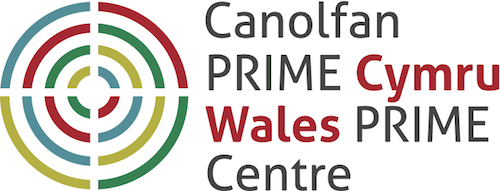Title
Development of a brief decision aid to present the benefits and risks of Aspirin as a preventive strategy for bowel cancer to members of the public who are eligible for screening.
Principal / Lead investigator
- Dr Stephanie Smits (PRIME, Cardiff University)
- Dr Sunil Dolwani (WCRC, Cardiff University)
Co-investigators / research team
- Prof Adrian Edwards (PRIME, Cardiff University)
- Dr Kate Lifford (Division of Population Medicine, Cardiff University)
- Dr Kate Brain (PRIME/WCRC, Cardiff University)
- Kathy Seddon, Public and Patient Involvement representative
Collaborators
- Prof Peter Elwood (Division of Population Medicine, Cardiff University)
- Hayley Heard (Bowel Screening Wales)
Type of study
Intervention development
Summary
Bowel cancer screening leads to a reduction in bowel cancer deaths of around 16%. Low-dose aspirin is associated with reduction in bowel cancer deaths of about 20%. Combining the two methods – bowel screening and aspirin – may bring additional benefit compared with either alone. In future, low dose aspirin could be offered alongside bowel screening as a combined approach to preventing bowel cancer.
Benefits of taking low-dose aspirin include less chance of developing bowel cancer and heart disease. However, risks may include bleeding from the stomach and more rarely, bleeding into the brain. If aspirin were offered as a preventive strategy as part of the bowel screening programme, risks and benefits would need to be presented in a way that enables people to make an informed choice about taking aspirin.
Over three phases of work, we will examine the acceptability and feasibility of a brief decision aid to support screening eligible members of the public choosing whether or not to take aspirin alongside bowel screening. We will summarise the clinical evidence on aspirin and collect data on people’s views on different formats for presenting the risks and benefits. We will use these findings to develop a brief decision aid about the risks and benefits of preventive aspirin use. We will then test the draft decision aid with a sample of potential users. This development work is necessary for future evaluation of a combined risk-reducing strategy for bowel cancer.
Lay involvement
Kathy Seddon, a research partner from the Wales Cancer Research Centre is part of the project team as a co-applicant. Kathy reviewed and contributed comments to the application development by providing ideas around rationale, recruitment and study methodology. Kathy has been involved all the way through from the expression of interest stage and will continue to input to the study now it is successfully funded, and will attend project management meetings.
The project concept as well as content of interviews will also be informed by the discussions from the Citizen’s jury (Longley 2006). This explored attitudes towards the role of medicines in maintaining health, using low dose aspirin as a case study. The process of the Citizens Jury involved 16 people being involved in discussions over four days, with results revealing the importance of information in decision making.
How could this research potentially benefit patients?
The proposed work will lead to the development of an acceptable brief decision aid to support people choosing whether or not to take low-dose aspirin alongside the bowel screening programme. We will gain increased understanding about preferences for information presentation style and timing relating to the risks and benefits of aspirin as a preventive strategy, and how this information could be best delivered alongside the bowel screening programme.
Developing a brief decision aid for use in the screening programme could directly benefit subsequent screening programme invitees in terms of increasing understanding of the risks, and benefits of preventive aspirin and helping people make an informed choice about its use. This work is a positive step forward in bringing the latest scientific research to the public in an easily understandable language and format. Through this project we will understand the most effective methods of communicating and presenting the risks and benefits of taking aspirin to reduce risk of bowel cancer. This will be crucial in developing future studies to test the effectiveness of aspirin use alongside the screening programme. It is also an essential step in developing larger studies on stratified screening and individualised risk, risk perceptions and screening outcomes. Through this preventive approach, we will ultimately aim reduce the morbidity and mortality associated with bowel cancer, and through working with the Bowel Screening Wales and Public Health sectors we will be able to design a brief decision aid that is implemented through the NHS infrastructure.
Who is the study sponsor?
Cardiff University
Does the study involve commercial partnership activity?
No
UKCRN portfolio number (if relevant)
To follow
Funder
Tenovus Cancer Care iGrant
Total grant value
£28,782
Start date
01/05/2018
End date
Extended end date to be confirmed.
Further information
Study summary on Tenovus website: https://www.tenovuscancercare.org.uk/research/community-research/current-igrants/development-of-a-brief-decision-aid-to-present-the-benefits-and-risks-of-aspirin-as-a-preventive-strategy-for-bowel-cancer-to-members-of-the-public-who-are-eligible-for-screening/
Outputs generated (Reports / Publications / Impact)
Elwood, P.et al. 2018. Systematic review update of observational studies further supports aspirin role in cancer treatment: Time to share evidence and decision-making with patients? PLoS ONE 13(9), pp. e0203957. (10.1371/journal.pone.0203957)

